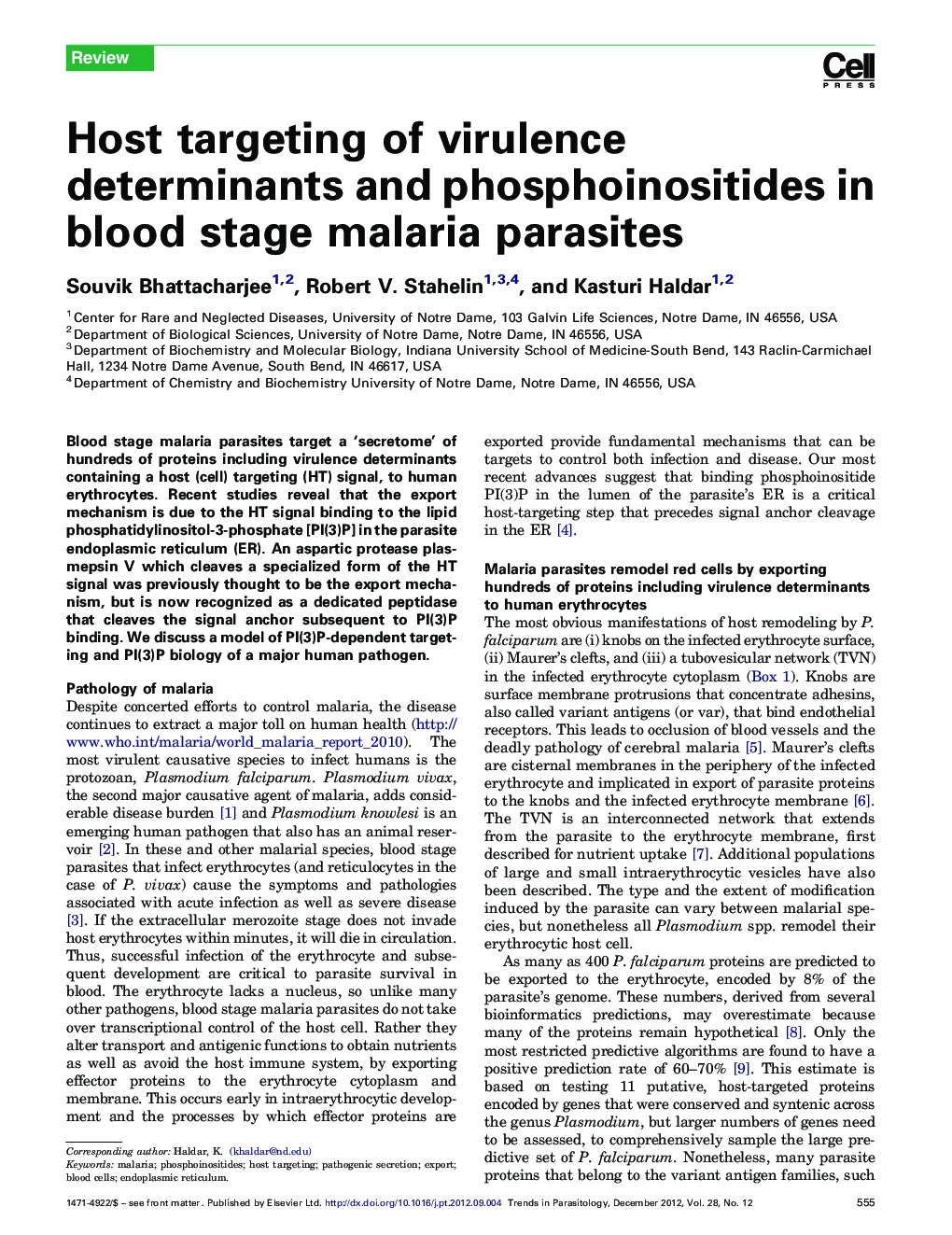| Article ID | Journal | Published Year | Pages | File Type |
|---|---|---|---|---|
| 3423237 | Trends in Parasitology | 2012 | 8 Pages |
Abstract
Blood stage malaria parasites target a ‘secretome’ of hundreds of proteins including virulence determinants containing a host (cell) targeting (HT) signal, to human erythrocytes. Recent studies reveal that the export mechanism is due to the HT signal binding to the lipid phosphatidylinositol-3-phosphate [PI(3)P] in the parasite endoplasmic reticulum (ER). An aspartic protease plasmepsin V which cleaves a specialized form of the HT signal was previously thought to be the export mechanism, but is now recognized as a dedicated peptidase that cleaves the signal anchor subsequent to PI(3)P binding. We discuss a model of PI(3)P-dependent targeting and PI(3)P biology of a major human pathogen.
Related Topics
Life Sciences
Immunology and Microbiology
Parasitology
Authors
Souvik Bhattacharjee, Robert V. Stahelin, Kasturi Haldar,
